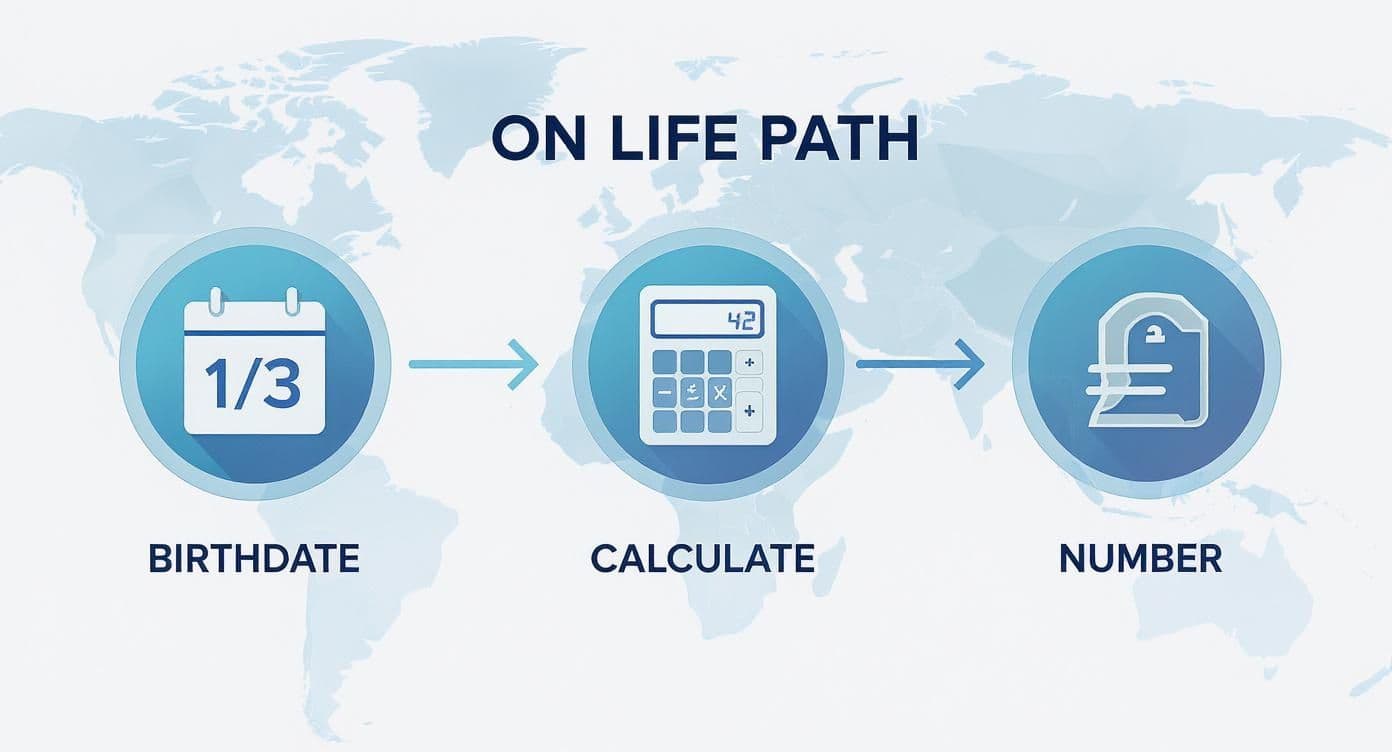If you’re feeling lost, that’s a signal to pause and realign. This guide offers practical self-discovery steps, a life audit, career alignment tips, and daily habits to turn clarity into action.
November 5, 2025 (3mo ago) — last updated December 9, 2025 (2mo ago)
Find Direction in Life: Practical Guide
Practical steps to find direction in life—self-discovery, life audit, career alignment, and daily habits to build a meaningful path.
← Back to blog
Find Direction in Life: Practical Guide
Feeling lost? Learn how to find direction in life with this practical, step-by-step guide. We explore actionable steps and tools to build a meaningful path that fits who you are.
Introduction
If you’re feeling lost right now, that feeling is a signal, not a failure. It’s an invitation to pause, look inward, and design a life that fits who you really are. This guide gives clear, practical steps—self-discovery exercises, a life audit, career alignment tips, and daily habits—to turn insight into action.
Lean Into the Feeling of Being Lost

Feeling adrift is uncomfortable, but it’s also an opportunity. It often appears when who you are inside and what you do outside are out of sync. Instead of resisting, use that discomfort as the starting point for a more authentic path.
Why Chasing External Goals Isn’t Enough
External milestones—job titles, salary, or social markers—can feel good short term but rarely provide lasting fulfillment. The foundational work is inward: values, strengths, and interests. Career coaching is shifting toward alignment over linear progress, with professionals increasingly seeking meaningful work and growth opportunities1. Broader research on career trends supports this shift2.
“The answers aren’t really out there, but within. The questions are simple, but the answers rarely are.”
Begin by asking better questions:
- What activities genuinely energize me?
- What past accomplishment made me feel truly proud?
- Which values are non-negotiable for me?
Your Initial Self-Discovery Toolkit
| Area of Focus | Guiding Question | Recommended Tool or Action |
|---|---|---|
| Values | What principles matter most? | List your top 5 non-negotiable values. |
| Passions | What do I lose track of time doing? | Brainstorm a “curiosity list” of things to explore. |
| Strengths | What do people ask for my help with? | Ask 3 friends or colleagues for candid feedback. |
| Impact | What problems do I want to help solve? | Journal about causes or issues that move you. |
These are starting points, not once-and-done tasks.
A Framework for Inner Guidance
Instead of obsessing over a final destination, learn your own blueprint. Dan Millman’s book, The Life You Were Born to Live, uses a birthdate calculation to identify a life path number that clarifies strengths and recurring challenges3. Tools like the Life Purpose App make that system quick to explore.
This approach isn’t about prediction; it’s a structured way to surface patterns and clarify choices that feel true to you.
Uncovering Your Life Path Through Numerology
Numerology can be a practical reflection tool. Millman’s system decodes tendencies from your birthdate so you can better understand your wiring.
Calculating Your Life Number
Add the digits of your birthdate until you reach the number combination described in Millman’s system.
Example: Born October 28, 1995:
1 + 0 + 2 + 8 + 1 + 9 + 9 + 5 = 35
In Millman’s interpretation, 35 often centers on creativity and personal freedom. Each number combination points to themes you can use for clearer decisions.
Use Tools to Get Instant Insights
The Life Purpose App calculates and interprets your number, delivering a profile that highlights:
- Your core purpose
- Innate talents
- Potential challenges
- Relationship dynamics
That profile often validates recurring feelings and gives practical language for building a plan.
Turning Self-Knowledge into Real-World Action
Clarity matters, but you must act. Use your insights to inform a life audit and concrete next steps.
Conducting a Practical Life Audit
Look honestly at where your life aligns and where it creates friction. Focus on three areas:
- Career and Work: Does your job let you use strengths or force you to operate from weakness?
- Relationships: Are key relationships fueling growth or draining energy?
- Personal Habits: Do your routines support the life you want?
Use your life path number to inform this audit and build a personal development plan.

If your path emphasizes creative expression, a rigid data-entry role will feel off. Recognizing that mismatch is the first step to change.
Aligning Your Career with Your Core Purpose
Workplaces are shifting toward skills-based models, creating more ways to match roles to strengths4. Instead of forcing yourself into the wrong role, create opportunities that let your natural talents shine. Small, practical moves include:
- Seek projects that let you lead.
- Volunteer to manage a small team or initiative.
- Build skills in project management, digital leadership, or other relevant areas.
These incremental steps turn insight into a career roadmap.
Finding Meaningful Work in a Modern Market
Purpose must meet real-world needs. Treat labor-market trends as a map—not a mandate—and find where your strengths meet demand. The World Economic Forum projects major labor-market shifts, with growth in fields like AI, data, and the green economy5.
- Spot transferable skills: communication, project management, and problem-solving move across fields.
- Look for hybrid roles: many new jobs blend skills in novel ways.
The goal is where your authentic path intersects with market opportunity.
Building a Flexible Skill Portfolio
Think of skills as a curated portfolio. Lifelong learning keeps you relevant and fulfilled. Use your life-path insights to choose which skills to add so your learning is strategic. For practical guidance, see our guide on how to find your calling in life or our remote job guide for hybrid-career ideas.
Building Habits to Maintain Your Direction

Clarity is one thing; maintaining direction takes daily practice. Small, deliberate habits connect your intentions to daily life and keep your inner voice audible.
Creating a Personal Feedback Loop
Commit to regular, compassionate check-ins. Journaling for a few minutes daily or weekly helps you notice patterns in energy and friction. Reflection prevents autopilot and keeps purpose front and center.
“True alignment requires the courage to question everything you’ve built—to admit that some of the things you’ve worked hardest for might not actually matter.”
Setting Intention-Based Goals
With clearer direction, goals change. Instead of chasing arbitrary milestones, create goals that extend your core purpose. Keep them aligned by:
- Reviewing life-path insights before setting goals.
- Asking “Why?” for each goal: How does this serve my deeper purpose?
- Building a supportive community of friends or mentors who understand your path.
Daily Habits for Staying on Course
| Habit | Why It Works | How to Implement in 5 Minutes |
|---|---|---|
| Morning Intention Setting | Starts your day with purpose instead of reaction. | Before checking your phone, take 1 minute to set your main focus. |
| Midday Alignment Check | Pulls you out of autopilot. | Set an alarm for noon. Take 3 deep breaths and ask: “Am I on track?” |
| Evening Gratitude Journal | Reinforces progress and trains your brain to notice alignment. | Before bed, write 3 things that felt aligned today. |
Integrating one tiny habit can make a big difference.
Common Concerns and Practical Answers
What if My Passion Seems Impractical?
Start small. Dedicate a few hours weekly to a passion project, translate your skills into adjacent roles, or use a bridge job for stability while you explore.
How Do I Handle Pressure from Others?
Not everyone will understand your choices. Listen to loved ones, but remember you’re the final authority on your life. A simple response can set boundaries: “I appreciate your concern, but this is something I need to explore right now.”
Is Numerology Science or a Reflection Tool?
Treat numerology as a structured self-reflection method. It’s not destiny; it’s a framework to reveal patterns and prompt meaningful questions.
Quick Answers
Q: Where should I start when I feel lost? A: Begin with self-discovery—list values, track energizing activities, and ask trusted friends for feedback. Do a life audit to spot mismatches.
Q: How can I turn insight into a career change? A: Use your strengths to find transferable roles, volunteer for stretch projects, and build targeted skills that bridge into new fields.
Q: What daily habit helps most with staying on course? A: A short, daily intention and brief evening reflection keep purpose active in daily decisions.
Ready to uncover your unique blueprint? The Life Purpose App offers instant, personalized insights based on Dan Millman’s work. Stop guessing and start living the life you were born to live. Download the app and find your path today.
Discover Your Life Purpose Today!
Unlock your true potential and find your life’s purpose.
